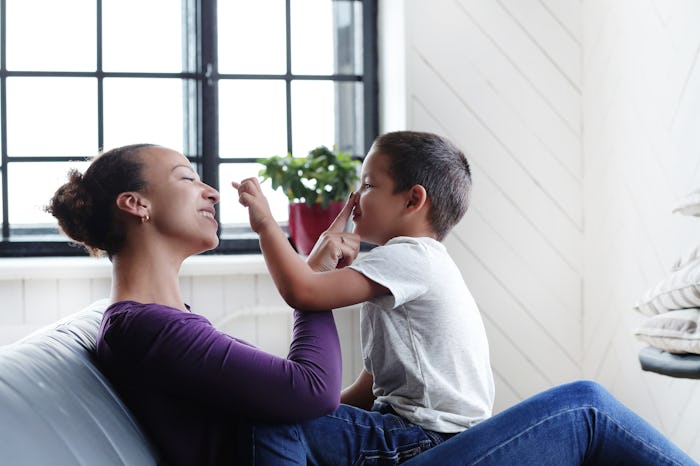Life

5 Ways To Build An Honest Relationship With Your Child For A Lifetime Of Closeness
One of the most important characteristics of a close family is trust; as parents, you set the example for your kids. If your child knows that you will love them no matter what, that they can come to you when they’ve made a mistake, they will be more likely to grow into honest people. In order for that to happen, you as a parent have to find ways to build an honest relationship with your child.
From the moment your kid is born, you are responsible for establishing trust between you and your child. Psychology Today refers to this as the Erikson's Stage, when a period of honest bonding is crucial for shaping their entire worldview. During this time, your baby learns that they can rely on you, because you listen and respond to their verbal cues. Whether it’s changing a dirty diaper, providing nutrients, or lulling them back to sleep, these actions leave an imprint in your child’s brain that says, “I know this person will take care of me.”
But building an honest relationship shouldn’t stop just because your once-baby is able to stand and walk without your help. It’s important to create an honest relationship as your child ages, so that way when they make a mistake — no matter how big or small — they’ll know they can come to you. How you treat your infant lays a crucial imprint in the child's brain, just as your actions when the same child is older are laying another imprint: how to have relationships. Here are five ways to build an honest relationship with your child for the rest of their lives.
1Apologize When You Are Wrong
A person who can admit when they are wrong is a person you're more likely to trust, right? According to Parenting, apologizing creates mutual respect between you and your child. Not to mention, it shows them how they should act when they've done something wrong.
2Feel Free To Change Your Mind

Your child asks you for something, and you quickly reply no. Maybe you're stressed, under pressure at work to complete an assignment, tired, or just tired of being asked so many questions. Either way, you realize afterward that you really are fine with what your child asked, and there's no reason for you to say no. Tell them. Letting your child know that it's OK to change your mind or make a mistake and admit it– out loud!– is showing them in real time what it means to be honest.
3Don't Keep Secrets
One of the worst things that can happen to a child psychologically is that they grow up feeling surrounded by secrets. "Children are intuitive and are quick to sense changes in tone of voice, facial expressions, and other non verbal communications indicating that there is a secret," Allan Schwartz, licensed clinical social worker, wrote for Mental Help. "If they have reason to fear asking for information because of parental anger, it has a dampening effect on their education."
Of course boundaries need to be maintained, because children don't need to know every detail of your life. But don't hesitate to talk about your emotions, the ones that they will know anyway, so that your kids will feel comfortable expressing their own feelings.
4Don't Freak Out When They Tell You Something Hard To Hear
If you burst into sobs and screaming when your child makes a mistake, your child isn't going to be coming to you with the truth next time. When your child admits they've made a mistake, lied or done something hurtful, remain calm. Remember, you don't have to respond right away. You can say "I'm glad you were honest. Let me think about this and get back to you." And then go in the bathroom and bite your knuckles while you cry, if you really need to.
5Focus On Consequences, Not Punishments
The best parents not only provide guidelines to their children, but empathy, compassion, and forgiveness. So when taking into account how to reprimand your child, consider natural consequences.
A natural consequence is as it sounds: the consequence that would naturally follow the behavior. If your child refuses to turn off the TV and throws a huge fit, then tell them they can't watch TV the next day, not that they have to go to bed without supper. Allowing your child to do something wrong and then experience calm, rational consequences is one of the best ways to build an honest relationship with your child. They will trust that they can depend on you and believe they can be honest with you.
Images: Yeko Photo Studio/Fotolia; Giphy (4); WiffleGif